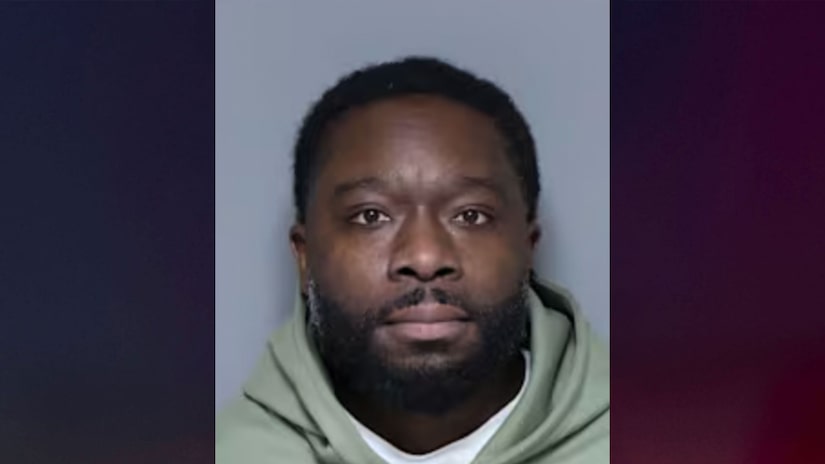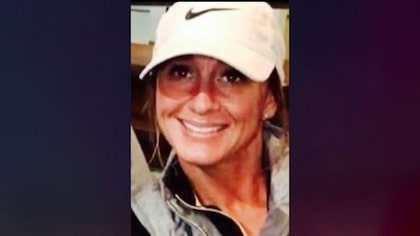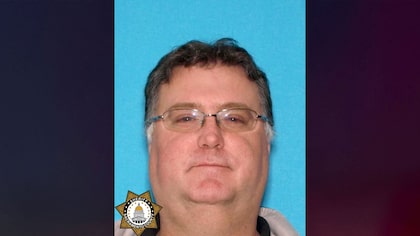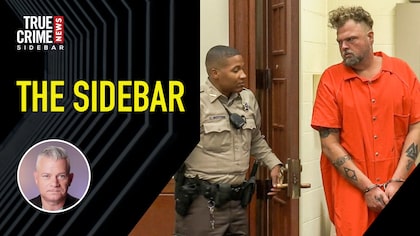Crime Watch Daily investigates deadly trend of 'Spice' synthetic pot
04/15/2016 12:17 pm PDT
Crime Watch Daily investigates a drug being abused in high schools all across the country: Synthetic marijuana, also known on the street as "Spice."
Veronica and Devin Eckhardt had a great marriage, strong faith, and three loving adopted children.
It was summer 2014 in sunny California.
"We were having a bonfire, roasted hot dogs and marshmallows, and took this great family picture," said Veronica.
Their son Connor was 19 years old. He had overcome drug addiction as a young teenager and he was clean and sober.
"Connor lit up a room like no one I had ever known," said Veronica. "Happiness for him could be hanging out with his sister, who is just a year younger. Surfing, playing the guitar, snowboarding, skateboarding, hanging out with friends."
Connor had a full-time job and was working when the rest of the family headed for a holiday in Puerto Rico. But shortly after they arrived, the Eckhardts' dream vacation suddenly ended.
"I got a phone call from my mother in law saying Connor was in a coma in ICU, and I'm thinking 'How could this be? We just left him,'" said Veronica.
Veronica and Devin's son had unknowingly slipped into a never-ending sleep, and now they wake up every day to a living nightmare.
"You keep thinking I'm going to wake up, this isn't real, this isn't happening, this can't be happening," said Devin.
What actually happened to Connor was something they, and most other parents, never knew they had to warn their children about.
"He had linked up with a new friend and the friend was like, 'Let's just get down to the local smoke shop and we'll get something,'" said Devin.
That night they smoked a product that looks a lot like marijuana -- but the dried leaves are laced with toxic chemicals.
"Spice," "K2," synthetic marijuana -- whatever name you have for it, you can legally buy this stuff if you are 18 years old -- but it can be lethal. Your first hit could be your last.
Tragically, for Connor, it was.
"He had one puff, one hit, and right away he didn't feel well," said Devin.
Connor went to sleep and never woke up. His so-called friend didn't call for help until 11 hours later. And by then it was too late to save him.
"His brain had swelled, the oxygen supply to his brain had been cut off for too long," said Devin. "Ultimately he was pronounced brain-dead."
His parents were reeling, not only dealing with the loss of their son, but also the circumstances of his death.
"We had never heard of 'legal highs,' never heard of Spice or K2, and we were not parents that had our heads in the sand," said Veronica. "People think 'My child would never do this.' I would have for sure told you that my son would never do this -- and I was wrong."
Still in shock, they decided the only thing they could do with their grief was to urgently warn others.
They didn't know it at the time, but the end of Connor's life became the start of a very long journey.
One mom basically told the Eckhardts: "If not for you, if not for you and Connor and Devin and your family being so open about what happened, my kid wouldn't be here either."
"Her kids came home and she said I need you to sit down, they were 13 and 14, and she went through Connor's Facebook page, and her son got up and he said just a moment mom, he went into his room and he came back with a packet of Spice and he said 'I had no idea, mom,' and that really is the truth of most kids, they have no idea," said Veronica.
The Eckhardts embarked on a mission to speak out against Spice.
"A lot of parents thought because it's called 'fake weed,' it was less than, and so maybe their kids were doing something, but it wasn't as bad as doing heroin or something else," said Veronica.
"It's poison, and sooner or later, if it's not killing your child now, it will," said Veronica. "But you give your child a chance when you educate them.
"There are so many 'one-hit' stories," said Veronica.
They've received hundreds of letters from around the world with tragic tales.
"This one here says 16-year-old son diagnosed with schizophrenia, he used Spice, tried to commit suicide, but thank God he's alive," said Devin. "Here's one we hear over and over again: 'My son was killed in September by friends that thought it would be funny to spike his drink.'"
Now, Veronica and Devin reach out to schools, legislators and parent groups, anyone who will listen to their heartbreaking account. Even the Drug Enforcement Administration wants to get the word out.
"Parents should be scared about this because these drugs are very prevalent among young people," said DEA Special Agent James Hunt. "Spice can kill you."
And even if it doesn't kill you, the potential side effects are shocking. Sadly, it's vulnerable teens who get sucked into thinking it's harmless. One in nine high school seniors report having tried a synthetic drug.
"There's a lot of confusion between marijuana and fake pot, or synthetic weed, and they're nothing like each other," said Devin.
Their once athletic, bright and affectionate son is now gone, but they hope his influence lives on forever. And in a real way, it will. Connor was an organ donor. His heart and other organs have been sent to save others.
But Spice's threat still remains. How can other tragic deaths be prevented?
One of the most troubling parts of the Spice epidemic is just how easily it can be purchased. In some cases it can be bought in corner store right over the counter.
"The chemicals are supposed to mimic the effects of marijuana, so it makes you feel good," said DEA Special Agent James Hunt.
"I was not aware synthetic drugs existed until I got the phone call my son was dead," said Deirdre Canaday.
Canaday's son Aaron also unknowingly played a game of "synthetic Russian roulette." Tragically, it killed him too.
"This is the substance that killed my son," said Deirdre. "I found this packet in his personal effects.
"It's like taking a candy wrapper and putting it around rat poison."
These dangerous recreational drugs are marketed and legally sold as flavored incense, but are often smoked as an underground substitute for pot.
Wrapped up in slick packaging, it's easy to see why teens think they're safe to use, though the label often discreetly says it's "not for human consumption."
"They put in pineapple flavor, orange flavor -- why would you flavor it if no one is going to taste it?" said Deirdre.
Police say it's anything but.
"You can die if you have a bad batch, it's unpredictable. Each package, even though they're the same, might have a different concentration," said LAPD Officer Peter Tulagan.
Most parents have never heard of synthetic cannabinoids, but they are killing and maiming more young adults every year.
Like Connor, Aaron's death could have been classified as "cause unknown" because the chemical substances in the packets often go undetected.
"Standard toxicology screens even looking for possible overdose do not show up in all these chemical compounds," said Deirdre.
And every time one compound is banned in the United States, more options pop up. Now Deirdre is fighting back. She lobbied relentlessly to get laws passed in New York to make selling Spice a serious crime.
"If it was criminalized and made a felony in each and every state, then DEA and law enforcement have what they need to curtail this," said Deirdre.
All 50 states have tried various laws to ban the stuff, without much success.
"What they need to do is mimic the federal laws, that way the DEA can cooperate with local law enforcement," said Deirdre.
And that's exactly what happened in her state. A multi-agency task force, including the FBI, the DEA and the New York Police Department busted a tire shop in Queens that was secretly manufacturing narcotics packaged for sale as synthetic cannabinoids.
These busts also shine a spotlight on the safety risks of ingesting a product from a makeshift lab in a back-alley warehouse.
"It's like any illegal drug: You're at the mercy of the person that mixed it," said Agent Hunt. "People don't know what they're taking."
Shockingly, you don't even have to be 21 to pick up a pack at the corner store.
"I know some of these shops are out here doing it secretly," said Officer Tulagan. "It's against the law to sell it over the counter, so what they will do is sell it under the counter."
Or, unbelievably, online, delivered straight to your kid through the U.S. mail.
"It's easy to obtain because it's not getting the attention it deserves," said Tulagan.
That's something these grieving parents are now dedicating their lives to change.
"It's worthwhile if I can save one family from the purveyors of these poisons," said Deirdre Canaday.




